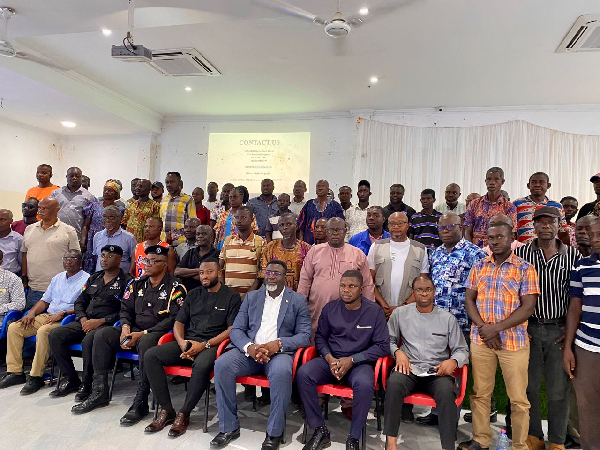Ghana's mango industry poised for growth - TCDA CEO
Tree Crops Development Authority officials are making plans to create jobs in the sector
As Ghana seeks to boost agricultural productivity and industrial growth, the Tree Crops Development Authority (TCDA) is taking decisive steps to transform the mango sector into a major driver of job creation and economic sustainability.
The chief executive officer of the authority, Dr Andy Osei Okrah has highlighted initiatives aimed at curbing post-harvest losses and ensuring a steady supply of raw materials to support local mango processors.
These measures, he said, will directly improve productivity, stabilise supply chains, and generate employment opportunities especially for the youth.
“Mango processing companies across the country are struggling due to a shortage of raw materials. If we don't fix the supply side, we risk missing out on a massive opportunity for job creation and industrial growth,” Dr Okrah noted during a recent tour of HPW Fresh and Dry Limited and Bomarts Farms in the Eastern and greater Accra region.
The authority plans to intensify collaboration with key stakeholders including research institutions and private agribusinesses to promote quality seedling distribution, improve access to tools, and train farmers in climate-smart and market-driven farming practices.
Mango farming in Ghana, currently the second-largest tropical fruit export, has significant potential for foreign exchange earnings and rural income generation.
Yet, about 30% of mangoes are lost post-harvest due to inadequate storage, handling, and logistics, compounding the raw material shortage that affects the country’s growing processing industry.
HPW Fresh and Dry Ltd, for example, is the largest dried mango processor in West Africa with an annual output of 2,400 metric tons.
Its supply network includes over 1,700 farms across the country. Meanwhile, Bomarts Farms, founded in 1985, has grown from a modest pineapple farm into a leading exporter and regional employer, with a workforce that is 60% female.
Dr Okrah stressed that revitalising the mango sector is not only about improving yields, but also about strengthening industrial value chains and creating sustainable livelihoods.
“We must prioritize plantation expansion, youth engagement, and long-term investment in research and development. That’s how we build a resilient agricultural economy.”
The mango sector currently observes two harvesting windows: the major season from April to August and a minor season from November to January.
The industry has also adopted standard protocols to guide actors along the value chain, from farmers and exporters to packhouse operators, to ensure high-quality mango exports year-round.
By aligning agricultural productivity with industrial processing needs, the TCDA’s latest push could mark a turning point in unlocking the full economic potential of mango farming in Ghana.











